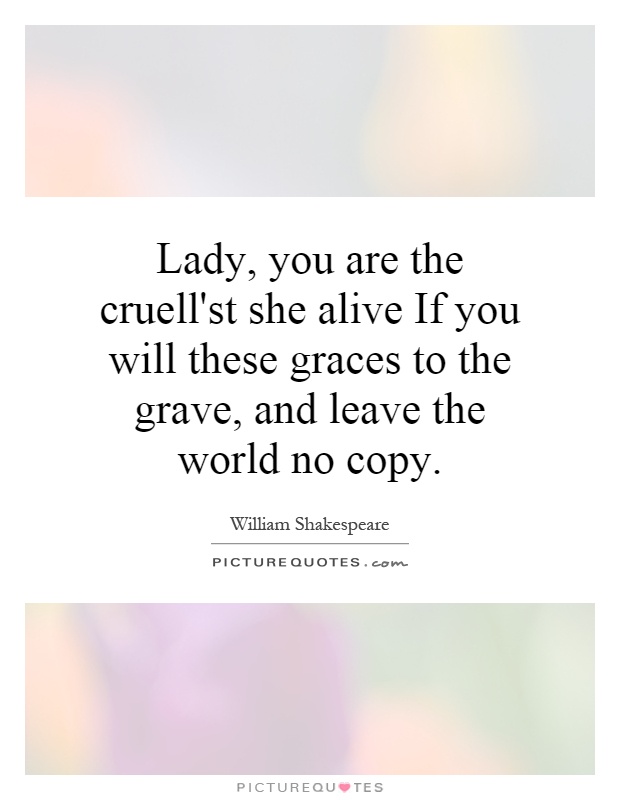Lady, you are the cruell'st she alive If you will these graces to the grave, and leave the world no copy

Lady, you are the cruell'st she alive If you will these graces to the grave, and leave the world no copy
In William Shakespeare's play "Much Ado About Nothing," the character Benedick speaks these words to Beatrice in Act 2, Scene 1. The context of this quote is a heated exchange between the two characters, who engage in a battle of wits and verbal sparring throughout the play.Benedick's words are a reflection of his frustration with Beatrice's refusal to acknowledge her own beauty and worth. He is essentially telling her that she is the cruelest woman alive if she chooses to bury her talents and virtues and not share them with the world. By "these graces," Benedick is referring to Beatrice's intelligence, wit, and charm, which he believes are too valuable to be hidden away.
The idea of leaving the world no copy suggests that Beatrice's unique qualities and talents will be lost forever if she does not embrace them and share them with others. Benedick is urging her to be true to herself and not let her insecurities or fears hold her back from making a positive impact on the world.
This quote also speaks to the theme of self-discovery and self-acceptance in the play. Beatrice struggles with her own identity and self-worth, and it is only through her interactions with Benedick and the other characters that she is able to see herself more clearly and embrace her true self.
Shakespeare often explores the complexities of human nature and relationships in his plays, and "Much Ado About Nothing" is no exception. The banter between Benedick and Beatrice is a central part of the play, and their verbal sparring serves as a reflection of their deep connection and mutual respect for each other.












 Friendship Quotes
Friendship Quotes Love Quotes
Love Quotes Life Quotes
Life Quotes Funny Quotes
Funny Quotes Motivational Quotes
Motivational Quotes Inspirational Quotes
Inspirational Quotes